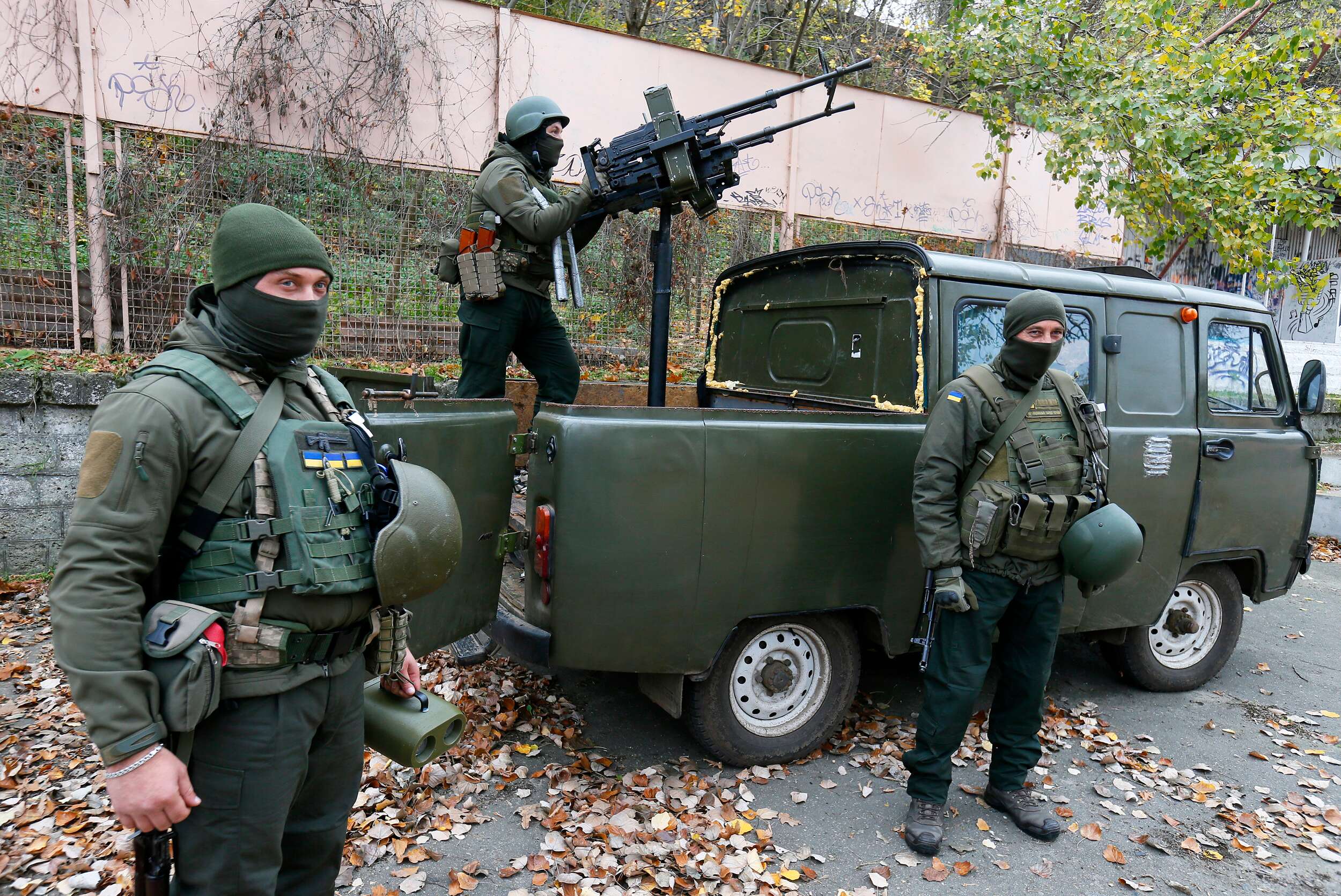18 Nov , 2022 By : Kaushiki Mehta

LONDON — A split appeared to be opening this week among Ukraine's supporters over whether its government should sit down for peace talks with Russia.
Some U.S. political and military officials have questioned whether the war could ever be concluded through force, with diplomatic talks the inevitable outcome.
But senior figures in Ukraine and in neighboring countries in Eastern Europe and central Europe — who were once part of a wider Russian empire under the then-Soviet Union — have rejected the idea that Kyiv should sit down and talk terms with Moscow.
“We shouldn’t be in a position where we dictate to Ukraine with other conditions for peace, if they are fighting for their own survival,” Czech Foreign Minister Jan Lipavský was quoted as saying in an interview with The Guardian on Friday.
He was summing up the feelings of many in the countries bordering Ukraine or Russia.
In a separate interview with The Times of London, Lipavský accused Russia of behaving like a 19th century colonial empire.
His comments, summing up the feelings of many in countries bordering Ukraine or Russia, came after Joint Chiefs of Staff Chairman Gen. Mark Milley on Wednesday repeated his view that the winter could provide a “window” for a diplomatic solution.
He said that the United States and scores of countries are financially backing Ukraine and will do so “for as long as it takes.” He also said that while it was nearly impossible for the Kremlin to win, it would also be difficult for Kyiv to remove Russian President Vladimir Putin's forces from the 20% of Ukraine already occupied.
“So, if there’s a slowdown in the tactical fighting, that may become a window — possibly, it may not — for a political solution, or at least the beginnings, for talks to initiate a political solution,” Milley said.
“Politically, there may be a solution where Russia withdraws, that’s possible," he said. "You want to negotiate from a position of strength: Russia right now is on its back.”
Ukraine has retaken significant swaths of land in the south and the east as part of a strong counteroffensive, forcing Russia to abandon the key southern city of Kherson last week, the only regional capital it had captured since the war began.
Ukrainian President Volodymyr Zelenskyy has previously said he wouldn't negotiate with Putin, but appeared to later soften his position. However, he told the Group of 20 meeting in Bali, Indonesia, on Tuesday: "Ukraine should not be offered to conclude compromises with its conscience, sovereignty, territory and independence."
Michael McFaul, the U.S. ambassador to Russia from 2012 to 2014, said that while many would back the idea of peace talks, not everyone would believe Putin would "negotiate in good faith."
Baltic nations have long warned of Russia's militaristic ambitions. Estonian Prime Minister Kaja Kallas said in a speech Tuesday that "unless Kremlin gives up on its goal of conquering new territories in Ukraine, it's hard to believe in prospect of real peace talks."
Ukrainian lawmaker Inna Sovsun was adamant that talks weren't the answer. "They think it will force us to make concessions. But it isn’t so," she said in a tweet Thursday, referring to this week's Russian bombardment of civilian infrastructure, one of the most intense countrywide attacks of the war.
"If [Russia] wants negotiations, then they’re already weak, the time has come to finish them off," she said.
Milley’s comments showed there is a disconnect in how the U.S. and countries who fear a future Russian invasion see the conflict, according to Jonathan Eyal, an associate director at the Royal United Service Institute, a defense think tank in London.
“The argument in Washington is that if the Ukrainians want to keep the coalition together and united, they need to keep an open door to the idea of a settlement and they must say so in terms that are realistic,” he said.
“There is clearly alarm among the central Europeans that this is the beginning of a process that will force the Ukrainians to accept a deal at exactly the time when the Russians seem to be on the run."
Eastern Europeans and those in central Europe want to defeat not just Putin's army, but also the idea of Russian imperialism, he added.
0 Comment